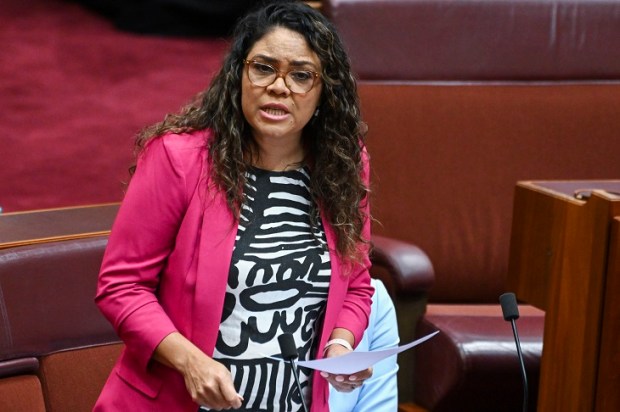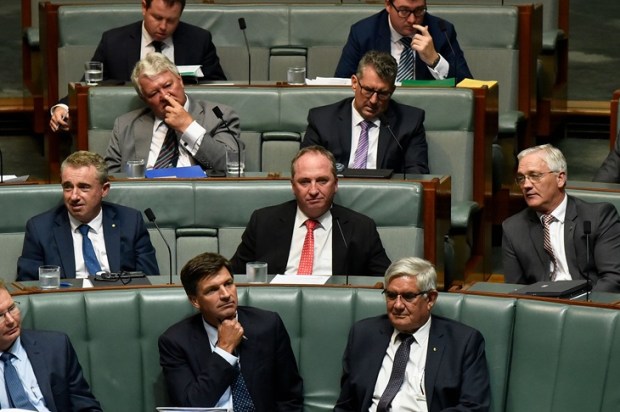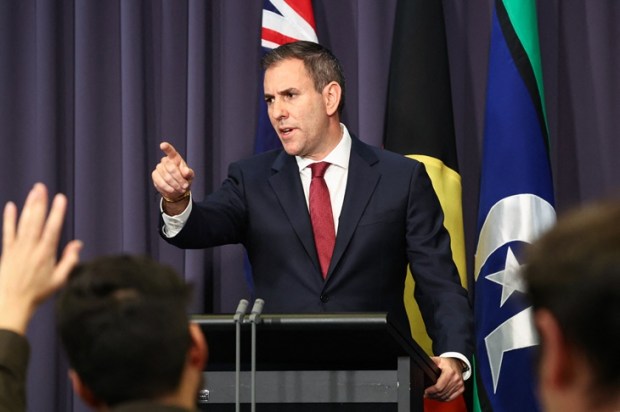A popular English YouTuber made an interesting claim in response to Britain’s local elections on Thursday: the two major parties are outdated. They are ‘20th Century parties’ that don’t belong in the 21st Century.
These comments were made by Carl Benjamin (also known as Sargon of Akkad), while reflecting on Nigel Farage’s unprecedented win (raking in over 40 per cent of available seats), and the catastrophe this represents for the two major British parties, especially the Tories.
Benjamin’s observation could be applied to the two-party system in Australia, as well. If our own election on Saturday showed us anything, it was that the Liberals, like the Tories, don’t seem to know who they are or what they stand for anymore.
In fact, the running joke for some time now has been that the only difference between the Liberal and Labor parties is a few years. The Liberals have been accused of being ‘Labor-lite,’ and it’s not hard to see why.
The Liberal Party used to stand for traditional family values, national sovereignty, and restrictions on immigration. Now, if you read the party’s belief statement, it is just a collection of buzzwords: ‘inalienable rights and freedoms’, ‘the role of law and justice’, and ‘individual freedom and free enterprise’. Who would disagree with any of this?
The problem that the Liberals in Australia and the Tories in Britain need to contend with now is that the world, and especially the youth, are moving in an increasingly right-leaning direction, as a backlash against the insanity of the left. It turns out when your society’s leaders are too afraid to define what a woman is, or campaign to permanently surgically alter and sterilise children, you push the fence-sitters to take a stand and declare that enough is enough.
This is what we appear to have seen in Britain last week, where the majority were likely to be voting not so much for Nigel Farage, as against Keir Starmer. And despite the fact that both elections last week produced wildly different results, they shared one thing in common: a resounding rejection of the major ‘conservative’ party in each country.
Now I am no political pundit; I’m just an Aussie millennial sharing her thoughts. However, it seems to me that the ‘conservative’ parties of Britain and Australia don’t seem to realise that they stand on the edge of extinction. Not only are they caught in an identity crisis – being too weak or too cowardly (or both) to take a stand on any principles that might be deemed controversial – but their recent strategy of belatedly parroting what their opposition is saying has put them in an extremely awkward position.
Many people across the West are rejecting left-wing policies and values, as we are seeing in Britain and the US right now, yet neither of the major parties appears to be aware of this.
However, while this trend seems to be increasing, especially amongst young men, there is still a significant proportion of people who support the left, or at least take a centre-left position. The so-called ‘conservative’ parties have awoken to find themselves caught between a rock and a hard place: they no longer hold to any strong conservative principles to make them stand out, so they are increasingly rejected by their former supporters, but their left-lite position just makes them look like a weaker version of the opposition, making them unappealing to both sides.
Say what you will about Labor; it at least presents a strong, united front. And if there is anything that will rouse the contempt of the voting public, it is weakness. For years now, the Liberal Party has seemed too scared to take a stance on anything.
Much like Trump, Reform UK has made its stance on contentious issues like immigration abundantly clear. The party isn’t perfect by any stretch of the imagination, but it represents a strong alternative to the left: something that is manifestly lacking in the Tories, or the Liberals.
The problem at the heart of all this, in my view, is that the current political class, and the ‘conservative’ parties in particular, are terrified of the mainstream media. These parties are replete with neoconservative boomers who still listen to the national broadcaster as if its word is gospel. They do not seem to realise that virtually no one under the age of 30 listens to this stuff anymore.
Most people in my generation and under are listening to podcasts or watching social media influencers or reading their X feed, if they’re paying attention to the news at all. I doubt that many in either major party understand why Trump won a second term, but anyone who calls himself a conservative really ought to. They ought to understand how fed up people are with the polarisation of our world, of the attempts to indoctrinate our children, of the obsessive ideological messaging shoehorned into almost every piece of entertainment media these days.
The major parties appear to be in utter thrall to the (increasingly inaccurately-named) mainstream media, and are either unaware or incapable of comprehending that fewer and fewer people actually care what these news outlets have to say.
Just look at the podcasts that are trending right now. Right-wing journalist Tucker Carlson is currently the most popular news podcast on Spotify and Apple Podcast, while Joe Rogan’s average viewership decimates that of mainstream news programs. While he is fairly centrist, he platforms a large number of people on the right including, of course, Donald Trump.
So when the so-called ‘conservative’ parties abandon their core principles and policies, is it any wonder why previous supporters begin to ask themselves, ‘What am I even voting for anymore?’ And when others, like Reform UK, take up the mantle that the former conservatives have long since discarded, they naturally gain the support lost by the major party.
Love Nigel Farage or hate him, the recent election represented an opportunity for Brits to give the finger to the government, and the entire political establishment. It only remains to be seen whether Australia will follow in the UK’s footsteps, but unless a strong conservative alternative appears, we will probably continue down this road for a long time.
Anna Hitchings is a freelance writer based in Sydney.

























